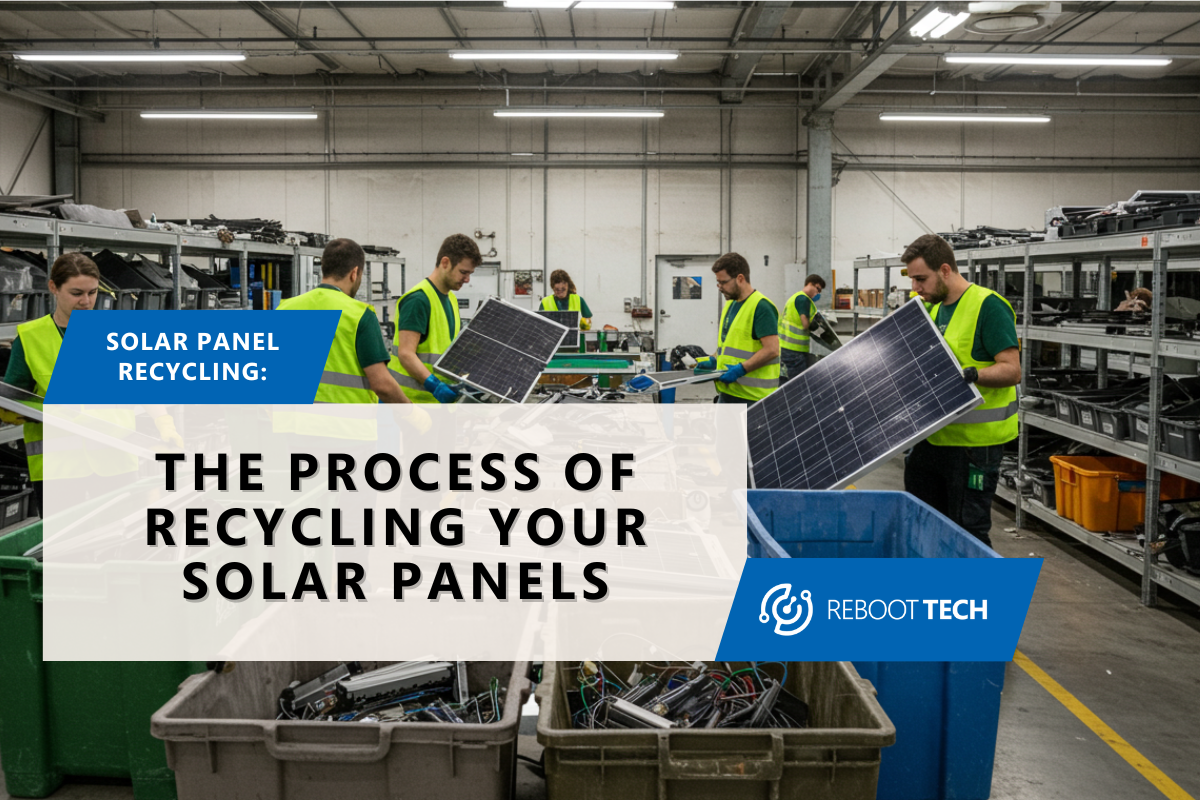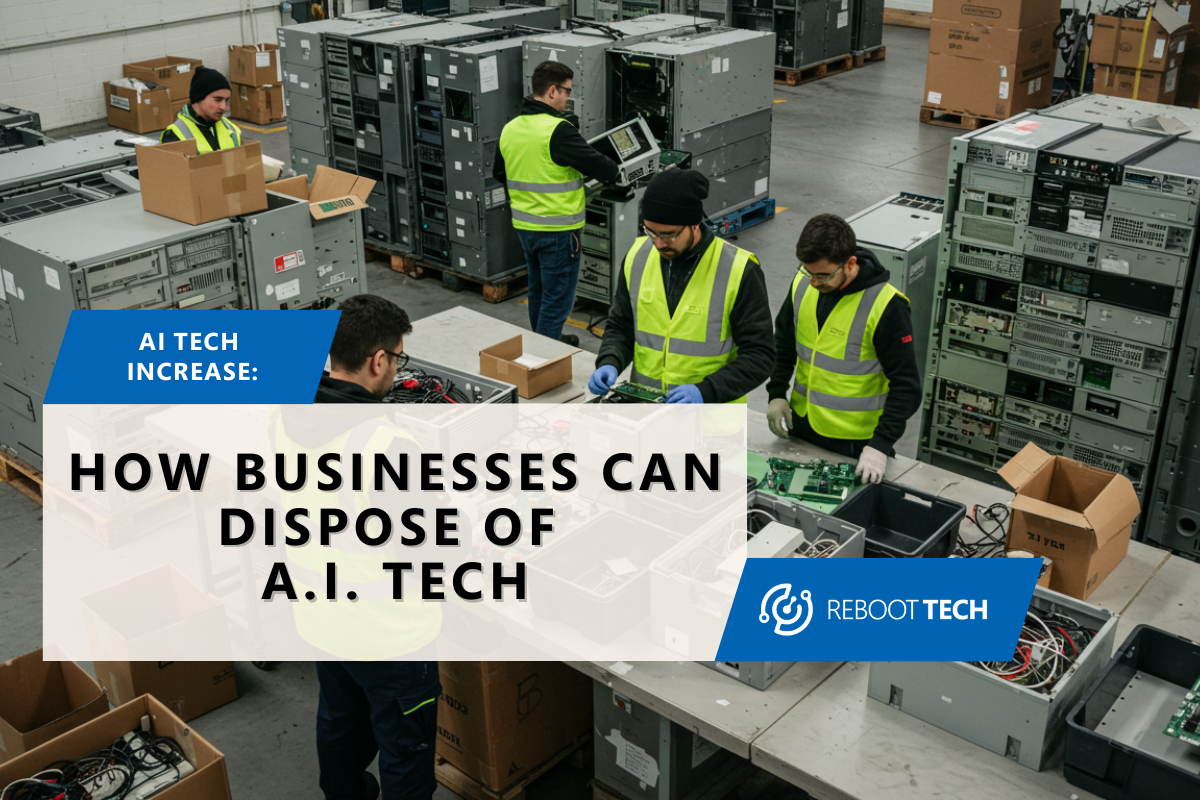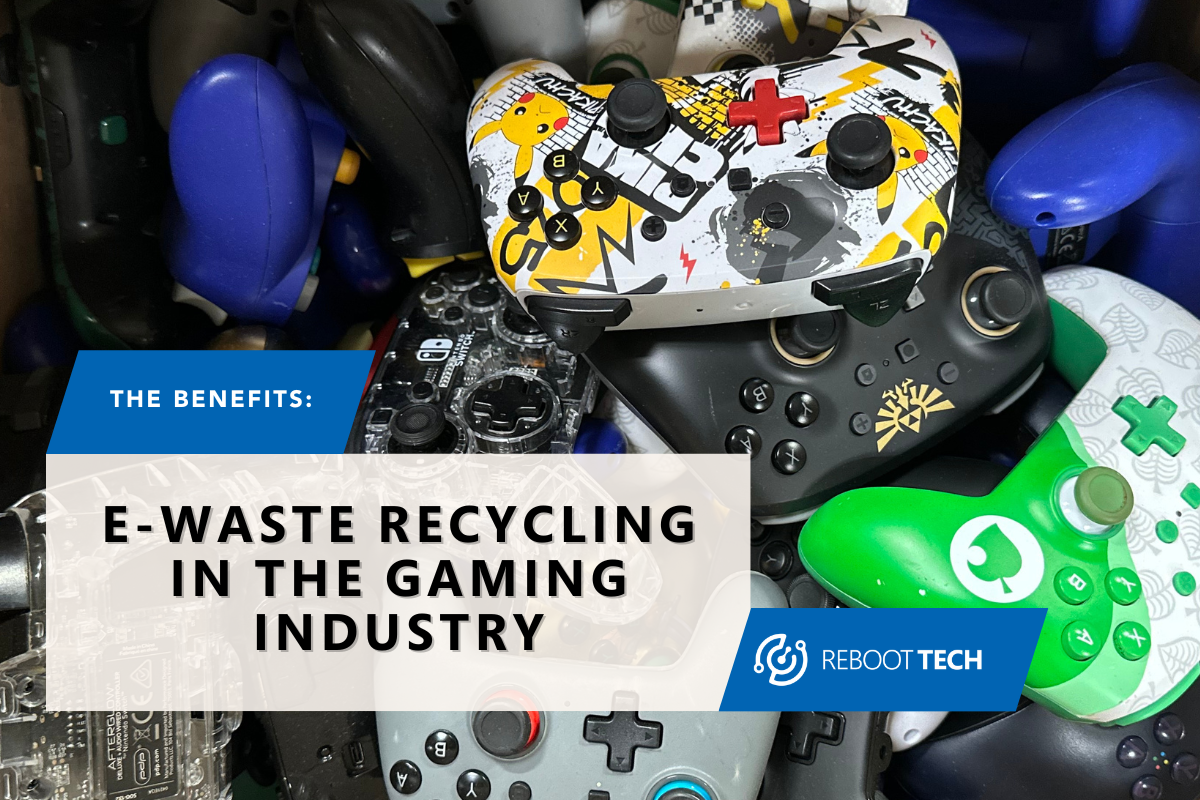
The Advantages of E-Waste Recycling for Gaming Companies
Playing video games is a hobby that’s been around for decades. From arcade games to gameboys, mobile gaming, PC games, and Virtual reality gaming, it has evolved quickly and will continue to do so. Everybody has their choice of video game console, from phones, PCs, the Nintendo Switch, Xbox Series, and PlayStation, all of which are great methods of escapsim. One unfortunate side effect, however, is the generation of e-waste.
The video game industry generates mass amounts of e-waste, and all sides are responsible, from game developers, manufacturers, and consumers. The e-waste is generated because consoles and PCs are in very high demand, and require precious materials to create. You might think that e-waste would decrease due to cloud gaming and downloading games digitally versus buying physical copies, but even digital copies can indirectly increase e-waste.
Consumer demand is at an all-time high, which prompts game developers to create more for the market. The other problem is that not all game development companies have sustainable e-waste recycling and can contribute to massive amounts of e-waste. In this article, we will explore the benefits of electronic waste recycling in the gaming industry and how it contributes to environmental sustainability.
Environmental Impact
Annually, the world generates about 60 million metric tons of e-waste, being the fastest-growing waste stream on the planet. In the fast-changing world of gaming, lots of consoles, controllers, and gear get replaced, leading to a bunch of electronic waste. Recycling e-waste helps by keeping old electronic devices out of landfills and reusing their parts. This helps gaming cut down on its environmental impact and save resources.
Electronic products often have toxic materials like lead, mercury, and cadmium, which can harm soil and water if not handled right. Recycling e-waste makes sure these hazardous materials are taken out and dealt with safely, stopping pollution and protecting nature. By handling e-waste responsibly, gaming can help keep the air, water, and soil cleaner.
The immensely popular PlayStation 4 (PS4) has a processing unit that has 54 different elements, including toxic heavy metals like lead and chromium. Thankfully, we have many companies out there that are willing to recycle their e-waste properly. For example, in 2019, PlayStation increased the quantity of their waste diverted from landfills from 63% to 90%.
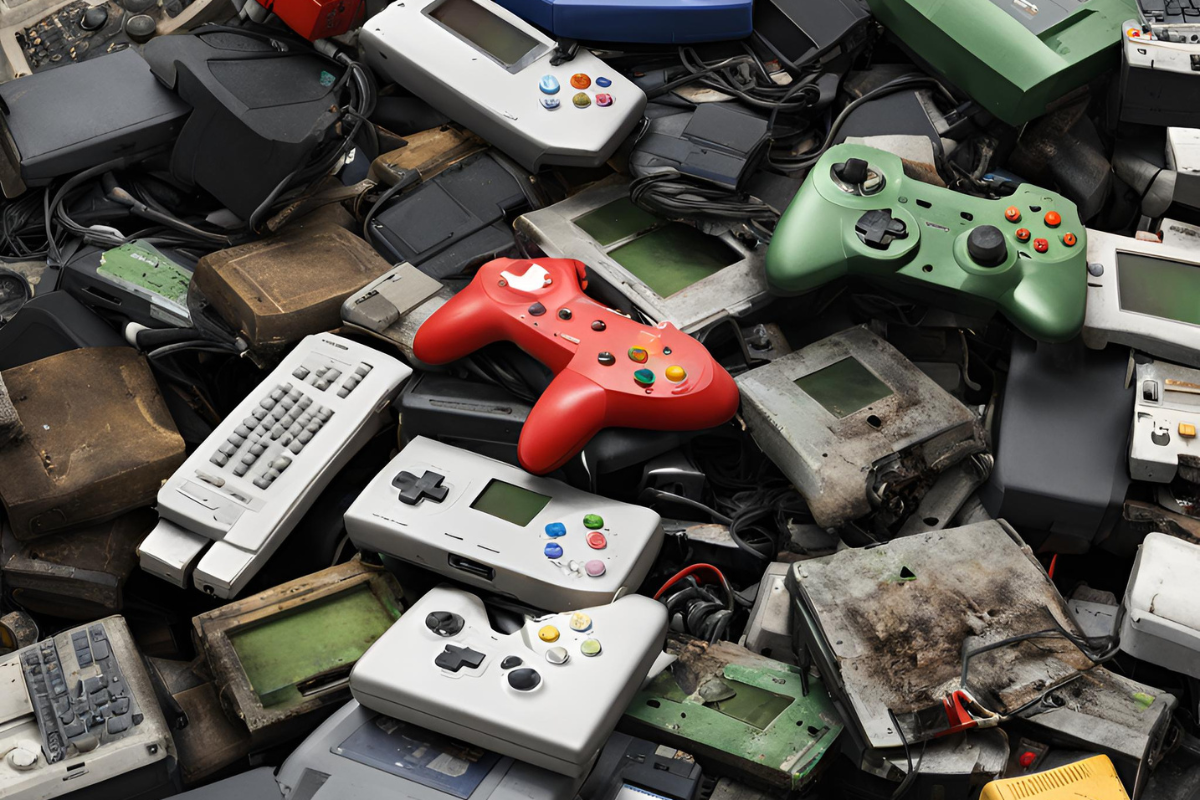
One last example is from Razer, an extremely popular gaming electronic device manufacturing company. They have great programs that incentivize people to recycle when they drop off used Razer products. For every item recycled, a person will receive $10 USD. According to their site, their carbon footprint is 60% lower than virgin PET plastic.
How Does The Gaming Industry Create E-Waste?
In the gaming industry, e-waste is generated for several reasons. The fast pace of technological advances leads to frequent upgrades and replacements of gaming consoles, controllers, and accessories.
Gamers often discard older devices as they seek the latest features and better performance. Additionally, the rise of online gaming and digital downloads means more electronic devices like computers, smartphones, and tablets are used for gaming. These devices add to e-waste when they become outdated or break down.
Physical game discs and cartridges also contribute to e-waste. Despite the growth in digital downloads, many gamers still prefer physical copies. Consequently, gaming companies keep producing and distributing physical media, which eventually turns into e-waste. The packaging for these games, such as plastic cases and inserts, also adds to the problem.
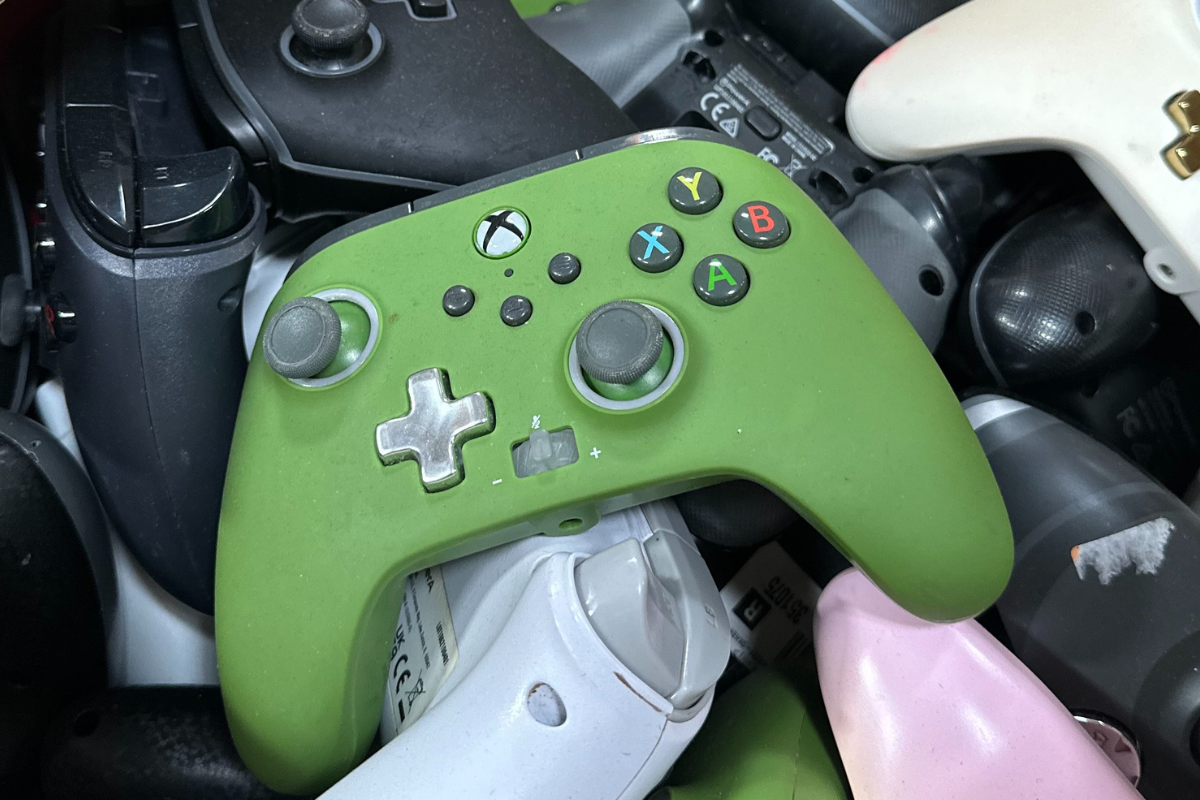
The focus on graphics and performance in gaming leads to the production of high-end hardware components that have limited lifespans. As technology advances, older components quickly become obsolete and are replaced by new models, increasing e-waste.
Having a high-quality gaming experience with immersive graphics is also very important, especially to avid gamers. The increase in quality over the last ten years has been unbelievable, where video games practically look like real life at this point.
With this in mind, gamers will have to keep upgrading their consoles, or PC parts more frequently to keep up with the evolution of gaming. Many individuals who spend more do not now how to responsibly deal with their e-waste as well. Thus, the evolution of gaming can increase consumer spending and e-waste as a whole.
Rapid technological progress, consumer preferences, and production practices in the gaming industry generate significant e-waste. This highlights the need for responsible disposal and recycling practices.
Economic Benefits
Many electronic devices have valuable materials like gold, silver, and copper. Recycling these devices helps recover these resources, cutting down the need for new materials and lowering costs for new gaming equipment. This makes the gaming industry more sustainable and efficient.
Recycling e-waste also creates jobs. Skilled workers are needed to sort, dismantle, and process the devices. By investing in recycling, the gaming industry can boost local economies and create job opportunities. Recycling centers often offer training and jobs for people from disadvantaged backgrounds, promoting social equity and inclusion. Not only that, but it can also help companies cut down on several costs.
Cost Savings
Partnering with an e-waste recycler can bring significant cost savings to the gaming industry. Let’s break it down. First, consider the expenses of managing electronic waste internally. From storage to transportation and disposal, these costs can quickly add up for gaming companies.
However, by outsourcing e-waste management to a specialized recycler like Reboot Tech, companies can streamline their processes and reduce overhead costs. For instance, instead of allocating resources to store and transport old gaming consoles and accessories, a gaming company can rely on the recycler to handle these tasks efficiently.
E-waste recyclers often offer value recovery services, which can turn old electronic devices into a potential revenue stream for gaming companies. Instead of treating outdated gaming equipment as a sunk cost, companies can recover valuable materials through recycling and resale.
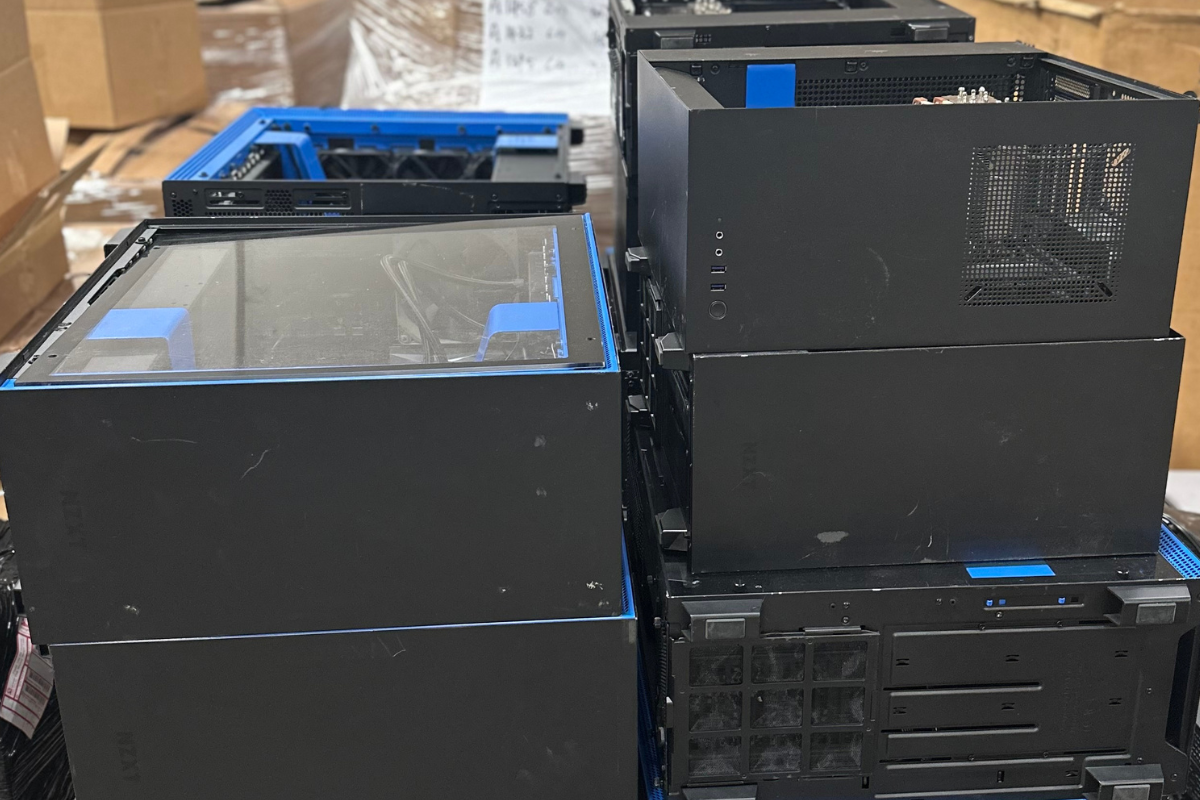
This additional income can contribute to overall cost savings and even offset the expenses of upgrading to newer gaming technologies. By embracing e-waste recycling as a cost-effective solution, gaming companies can optimize their financial resources while contributing to environmental sustainability.
Social Impact
By adopting e-waste recycling, gaming companies show they care about the environment. Consumers today are more aware of their environmental impact and prefer to support eco-friendly companies. Research shows that nowadays, consumers feel a lot more connected to their brands when they share similar values, such as caring for the environment.
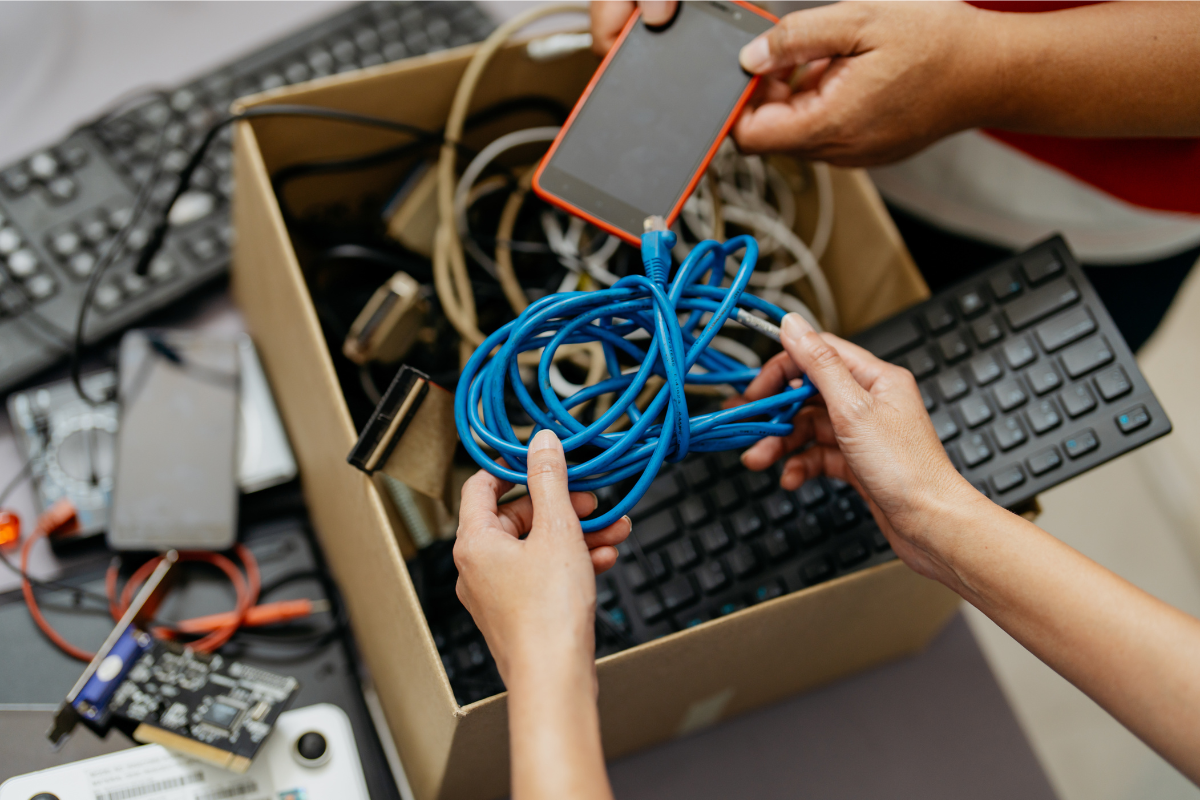
Roughly 57% of consumers increase their spending and 76% will end up buying from them over some other competitor, if those values are transparent. By including e-waste recycling in their business plans, gaming companies can boost their reputation and attract green-minded customers.
E-waste recycling also sparks innovation in the gaming industry. Recycling old devices lets companies recover valuable parts for new products, promoting a circular economy. This approach reduces waste and saves energy. Plus, recycling centers often become hubs for research and development, advancing e-waste management technologies.
With companies saving materials and parts from proper recycling, they can most likely develop better technology quicker as well. This can help create better gaming experiences for people and promote good environmental practices.
How To Fix The E-Waste Problem in Gaming
To tackle the e-waste issue in the gaming industry, there are some practical steps that can be taken. One way is for gaming companies to design more energy-efficient hardware and software. This means optimizing device performance to use less energy during gameplay and improving the energy efficiency of online game servers.
Focusing on energy efficiency in product development can greatly reduce the environmental impact of gaming. Another important step is for gaming companies to use renewable energy sources in their operations.
Using solar, wind, or other clean energy sources can significantly lower the carbon footprint of the industry. Switching to renewable energy not only reduces environmental damage but also promotes sustainable business practices.
Consumers also play a key role in addressing the e-waste problem in gaming. Players can save energy by turning off devices when not in use, adjusting power settings to use less energy, and avoiding standby mode. By promoting better buying habits and proper recycling, consumers might take an extra second to think about whether or not they need to upgrade, and if they do, it’s important they know how to dispose of their old devices.
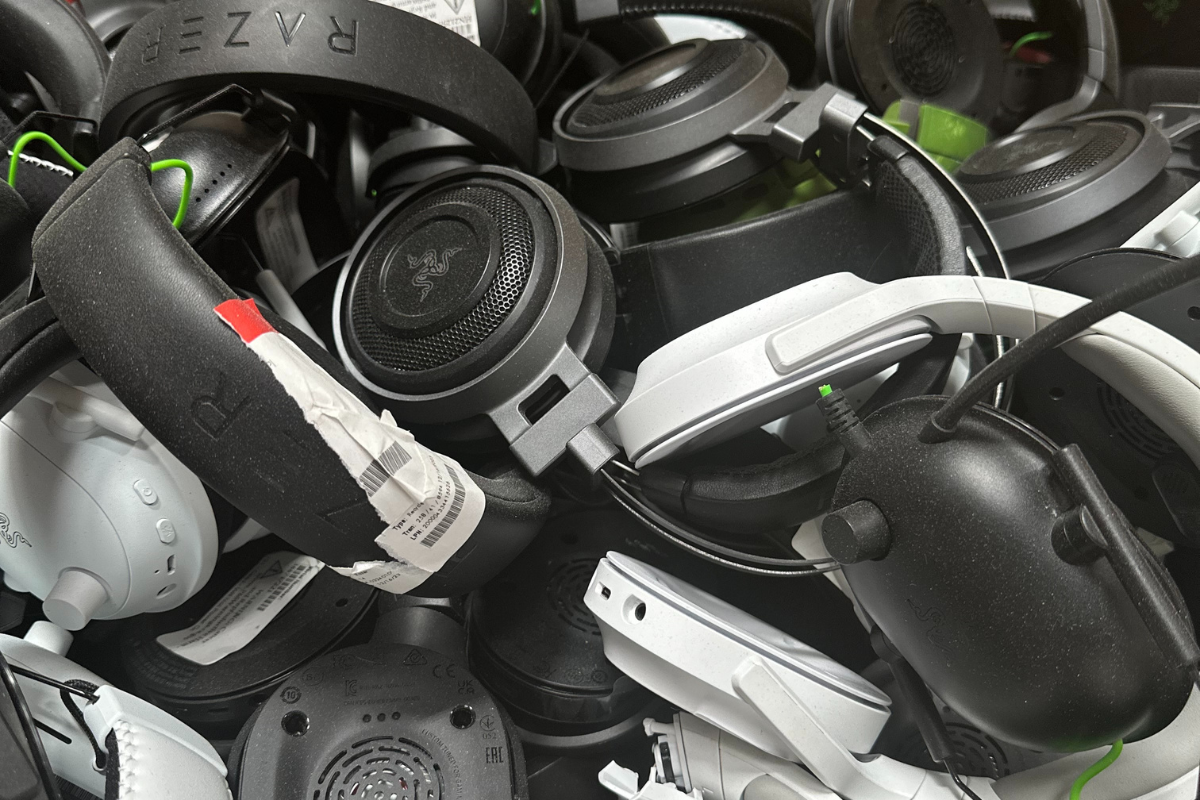
Additionally, players can reuse gaming devices instead of constantly upgrading to new ones. When it’s time to get rid of gaming equipment, proper recycling through electronic recycling programs or returning devices to the manufacturer for proper disposal is essential.
Working With Certified E-Waste Recycling Companies
Gaming companies can gain a lot from partnering with certified e-waste companies like Reboot Tech. These certified companies, with R2v3 and ISO certifications, ensure e-waste is handled properly and meets industry standards.
Certifications guarantee that e-waste is disposed of and recycled correctly, following strict environmental and data security rules. Gaming companies can trust that their old or surplus electronics are managed safely and ethically.
Certified e-waste companies also offer extra services like IT Asset Disposition (ITAD) and data destruction. These services ensure that sensitive data on devices is securely erased before disposal, protecting against security breaches.
There have been a few infamous incidents, such as the gaming company, Insomniac, getting hacked back in 2023. Hackers released 1.3 million files that showed off future games such as Wolverine, and Spider-Man 3, deleted concepts, employee information, and much more. This cost the company massive amounts of money and really hurt its future releases.
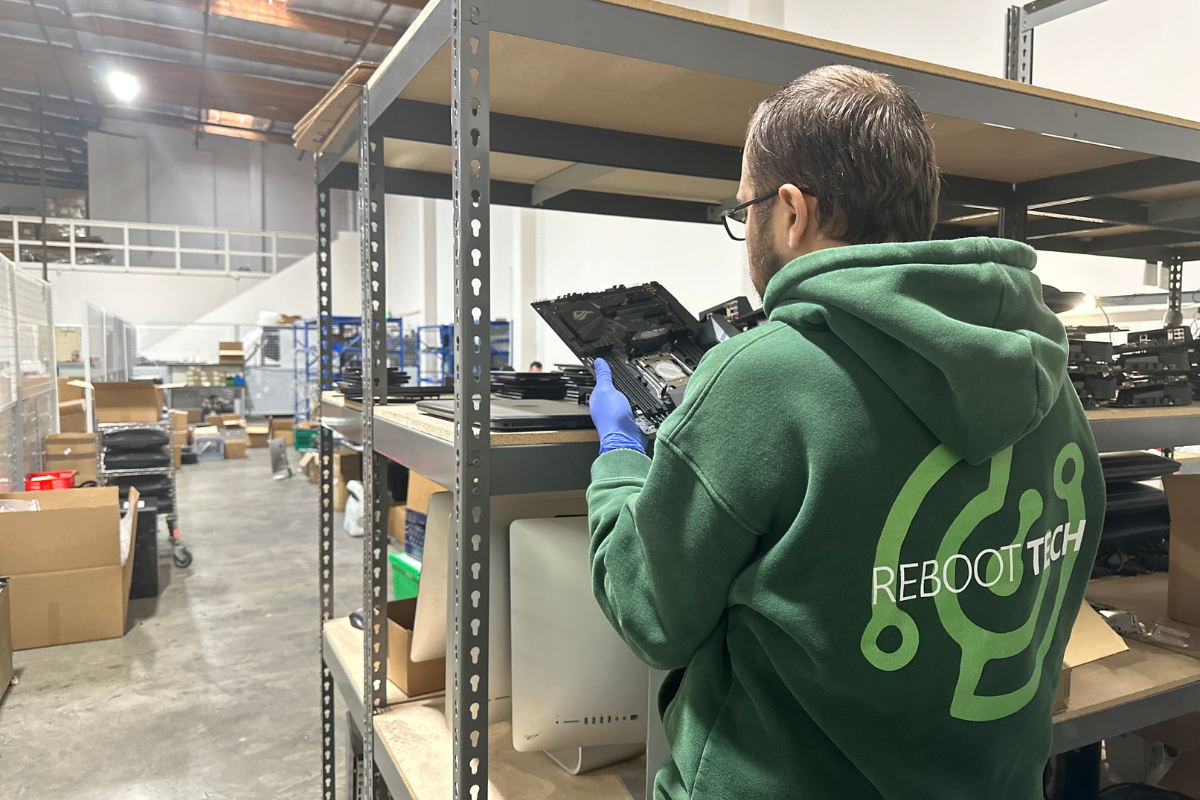
This is why it’s so important to have your data destroyed properly when you recycle old devices. By using certified professionals like Reboot Tech, gaming companies can reduce e-waste pollution and support a sustainable environment.
E-waste recycling has many benefits for the gaming industry, including protecting the environment, saving money, and showing social responsibility. By managing electronic waste responsibly, gaming companies can lower their environmental impact, save resources, and help create a sustainable future. Prioritizing e-waste recycling allows the gaming industry to contribute to a cleaner, greener, and better world for future generations.


